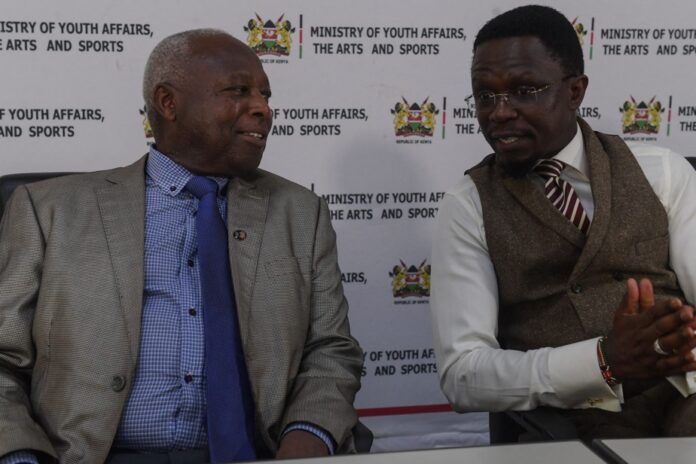(Nairobi) Kenya, recently accused of large-scale doping by the Athletics Integrity Unit (AIU), unveiled a plan on Thursday to combat this scourge and test more than 3,000 athletes a year, up from 1,000 today. today.
This communication comes from a committee made up of representatives of the Kenya Athletics Federation, the National Anti-Doping Agency (Adak), the local Kenyan Ministry of Sports and the IAU, an independent body which has been dealing with doping issues since 2017. and integrity in athletics.
“The immediate strategic priority is to increase the capabilities of the Adak to test more athletes outside of competition,” a statement said. “There is a major structural flaw in the current organization and it needs to be fixed. »
Kenyan Sports Minister Ababu Namwamba has said he would like his country to achieve 3,445 tests per year among a target population of 37,900 athletes.
“The ministry has declared cause N.1 integrity in sport and total war against any form of cheating in sport,” he said. “We can’t afford to lose this war. »
The committee also announced its intention to strengthen its mechanisms for investigating and monitoring athletes, in particular through the biological passport or the implementation of educational programs.
The plans stem from a report by the committee that met in December, after a previous government announcement pledging $5 million a year for five years to combat the use of performance-enhancing drugs in sport.
In recent years, no less than 67 Kenyan athletes, mainly specializing in distance running, have been suspended.
In early April, the IAU expressed concern after several doping cases “highlighting the involvement of people with medical experience”.
“It is clear that doping in Kenya is becoming better organized,” said IAU President David Howman in a statement.
This communication followed the eight-year suspension of runner Eglay Nalyanya, found guilty of using a doping product, a few weeks after that of Betty Wilson Lempus, suspended for five years for similar reasons.





